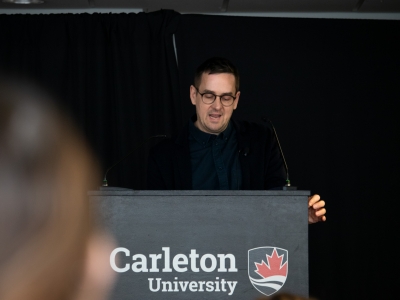Alenjandro Hernandez is a PhD student and a participant in the upcoming “Managing Migration in World Society: International Organizations in Migration Politics” research workshop, to be held in Ottawa on March 10-11, 2016. He wrote this blog for the FGPA website.
Migration has, once again, revealed itself as a central and defining feature of the interconnection among societies, Canada being a clear example of this due to the recent arrival and resettlement of 25,000 Syrian refugees. At the same time, international migration organizations, such as the United Nations High Commissioner for Refugees (UNHCR) and the International Organization for Migration, have become leading global players that not only shape and deliver programs focused on immigrants and refugees, but also guide some states in managing these migration processes. The Syrian people new to Canada have, for instance, been pre-identified and pre-cleared by the UNHCR in countries such as Lebanon and Jordan.
Nonetheless, little is known about how international organizations interact among each other at different scales and with other types of organizations, such as settlement and immigration agencies, NGOs, and academic institutions. In order to address these key issues, particularly regarding the role of international organizations in current migration processes, the Mobility & Research Collective at Carleton University, under the leadership of Prof. Martin Geiger, is hosting the ‘Managing Migration in World Society: International Organizations in Migration Politics’ research workshop, to be held in Ottawa on March 10-11, 2016.
You can read the full story here.
Learn more about the workshop here.
Wednesday, March 9, 2016 in FPA Research Series, News
Share: Twitter, Facebook



